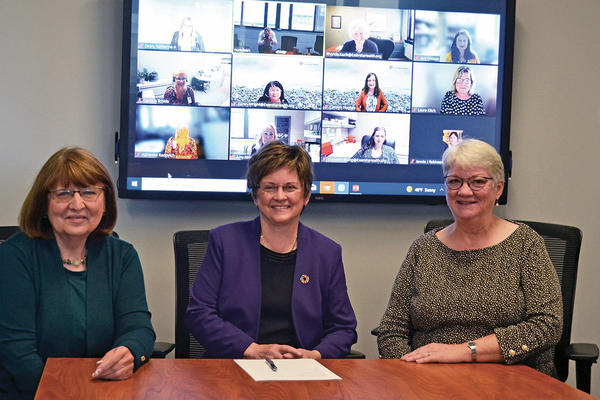Novel research on direct breastfeeding for infants with critical congenital heart disease
May 4, 2022

Kristin Elgersma
Congenital heart disease (CHD) is the most common birth defect, with nearly 1 in 100 infants affected. Infants with critical CHD (CCHD) require surgery within the first year of life and are typically hospitalized after birth. These infants often experience significant feeding problems, which impact health outcomes and are extremely concerning to families. Human milk feeding and direct breastfeeding rates are particularly low in this population, with challenges related to infant-parent separation, the baby’s clinical course and high levels of parent stress. Kristin Elgersma, PhD candidate and center member, is the parent of an infant born with CCHD and has firsthand experience with feeding issues in this population.
Together with Samantha Sommerness, DNP, APRN, CNM, (Clinical Associate Professor and PhD student), Nellie Swanson (DNP ’21), and Lynn Tanner (PhD student) and supervised by Associate Professor Anne McKechnie, PhD, RN, Elgersma is leading a qualitative study to investigate how lactating parents establish a direct breastfeeding relationship with infants who are hospitalized for CCHD.
“This study is the first to focus on parents who have been able to achieve a direct breastfeeding relationship with their child with CCHD,” says Elgersma. “This is an important step forward as, traditionally, many health care providers did not think direct breastfeeding was possible for these infants. We have interviewed 30 parents from 26 cardiac centers nationwide who describe that direct breastfeeding is definitely possible for these vulnerable infants.”
Strikingly, 53% of the infants represented in this study have single ventricle physiology, considered the most severe form of CCHD. Elgersma noted that there was high interest in the study, with initial recruitment goals met in only one day, which highlights the critical need for research in this area.


